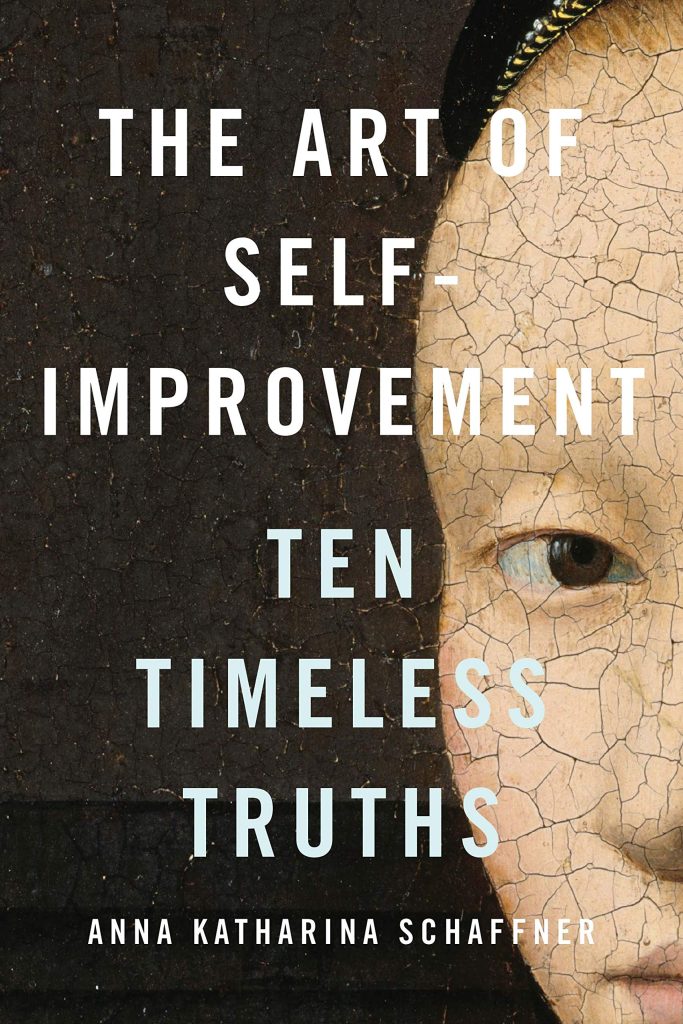Self-help is a tricky subject. Depending on the audience, it can provoke intense sympathy and intense skepticism. A dismissive attitude toward the current self-help culture can point to the lack of substance and depth in the popular material, the deceitful and self-serving “gurus,” the hyper-optimism of followers, the fixation with “positive thinking,” the unrealistic promises, the individualistic bias, and the social-political blindspots. But should the self-help culture–with all its associated ideas and aspirations–be completely dismissed? Can we treat self-help, the desire for it, as a symptom of something else, as an expression of something that is itself innocent, noble, honest, and worthy of attention? Here is a passage that could serve as an introduction:
"Self-Help [by Samuel Smiles] was published in 1859--the same year as Charles Darwin's The Origin of Species. Many have come to think of Self-Help as one of the defining documents of the era, no less important in its way than Darwin's work. It clearly hit a nerve, and gave voice to some of the Victorians' most pressing aspirations and anxieties." (from Chapter Eight)
Anna Katharina Schaffner’s book shows us a way of engaging with self-help culture, a way of detecting and evaluating its weaknesses, false claims and assumptions, and identifying its promises, while also recognizing the underlying truths in it that are worth uncovering and preserving. Thus, perhaps the primary strength of the book comes from Schaffner’s refusal to completely dismiss (or completely endorse) this part of our contemporary culture.
To refer to the redeemable core of self-help, she uses the term self-improvement, showing that self-improvement has been a part of much older philosophical and religious traditions. By comparing newer self-help movements with older ideas, Schaffner helps us develop an historical sensibility regarding the core concepts of self-improvement. The historical sensibility is a great strength of the book, and demonstrates a method (a way of approaching the subject-matter) that can be applied to other topics. The ideas central to self-improvement (e.g., perseverance, simplicity, humility) have undergone profound transformations and have been influenced by, and interpreted through, the overarching culture of the time and their dominant ideologies. The book highlights the tension between, on one hand, the aim of knowing yourself (which includes knowing your desires) and, on the other hand, taking your desires for granted and naïvely going after what you want. By naïvely going after what we want, what we are supposed to want, we are prone to serving, not our own best interests, but the prevailing ideologies of our time.
Each chapter in the book is organized around a central idea, and Schaffner does a fine job of renewing our thinking about each idea, tracing it across history, while also refreshing our view of familiar thinkers who were preoccupied with these ideas. We read about H. D. Thoreau, for instance, in relation to the concept of simplicity; we read about Emerson and Nietzsche in relation to imagination; many, including Buddha and Jesus, show up in multiple chapters. It does, of course, seem strange to see Emerson on the same scale as Tony Robbins or Alan de Botton, or to see on a single page a reference to Nietzsche’s Human, All Too Human and Samuel Smiles’s Self-Help. Perhaps that is Schaffner’s intention–to let contrasts emerge on their own, as we include various thinkers within a single discussion, and when we treat them all as a cultural material. When you put a passage from Jordan B. Peterson’s writing next to a passage from Seneca, you really don’t need to do much work in creating a sharp contrast.
Understanding types of self-help writers is particularly useful when we approach them critically with reference to common errors, e.g., over-estimating the role of willpower. In this regard, Schaffner’s treatment of Jordan B. Peterson and M. Scott Peck is quite effective. She highlights the social-political implications of a type self-help, tacitly expressed in their claims, the degree to which they emphasize individual responsibility and neglect the role collective action and organization.
"Both Peterson and Peck, then, believe firmly in willpower and discipline as our path to salvation. If we struggle, nothing but our own laziness and weakness are to blame. In this respect, their work resembles nothing so much as a moral treatise from the Middle Ages." (from Chapter Eight)
Schaffner’s style throughout the book is scholarly, patient, and charitable. The book could’ve been more energetic and engaging had the author’s voice been more personal. There is a personal element in the writing, which at some points becomes more visible (e.g., when she describes an overzealous minimalist movement as “snobbish” and “irksome”), but for the most part the scholarly and detached style is dominant. Furthermore, many of the references (e.g., self-help books and authors), are named without much reflection or evaluation. This was probably necessary given the author’s ambition to include representative samples of both contemporary and historical contributions. Nevertheless, to the extent that Schaffner engages with the material, the book is illuminating and helpful. You can even treat the book as a self-improvement resource, but that would require taking a personal, non-formulaic, and “inefficient” path, one that involves understanding what we desire, one that involves reflecting on who we are personally and collectively, and not a quick method of getting to what we (are supposed to) want.
